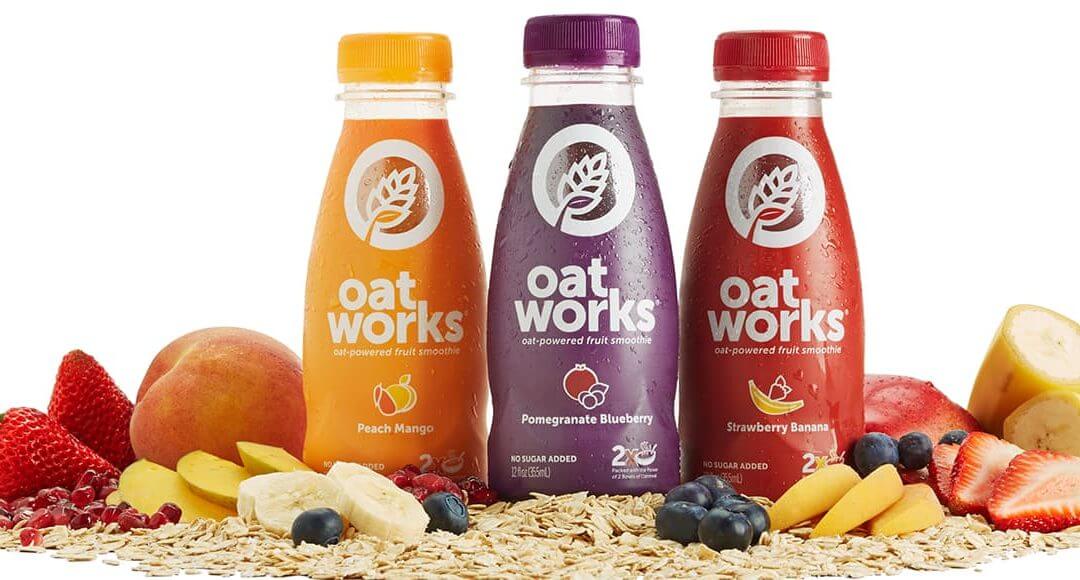As a middle-distance athlete who competed internationally and regularly ran a 4-minute mile, I understand the importance of providing my body with the right sort of nutrition. Try running a race without having consumed enough energy beforehand, and you’ll quickly discover that it’s like trying to drive a car with only a drop of petrol in the tank – you stall before you get to your destination.
The same applies to working life. How can you expect to keep up with the frenetic pace of modern-day business, when you’re one of the 50% of Britons who regularly skips breakfast?
If you want to perform at a high level, you need to fuel your body.
Fuelling your body correctly is a function of type and timing. The type of food you choose will ensure you have the right grade of petrol in your tank, while consuming it at the right time of day allows you to draw on that energy when you most need it.
Having worked in the city for over a decade, before pursuing an even more demanding career as an entrepreneur, I know the importance of fuelling your body for work. My selection of the right foods at the right times has helped to give me the energy, focus, and edge required to successfully navigate my way through the day.
How easy is it to stay healthy?
It can often be difficult in today’s fast-paced environment to eat as healthily, or as frequently as we would like. Never is that truer than at the start of the day, when simply getting out of the door on time is a major challenge. However, breakfast is the one meal of the day we can’t afford to miss. Going without or relying on several cups of coffee are recipes for failure later in the day – and arguably in the longer term too. Our health is our wealth and we need to invest in it.
Why is breakfast important?
The evidence for the importance of breakfast is overwhelming – for both cognitive and physical functions. The brain requires glucose to function and breakfast helps to restore glucose levels which If you have fallen overnight. Numerous studies have shown how memory and concentration levels are improved by eating breakfast, not to mention the positive impact it has on mood and stress levels.
You invest in your career by attending training courses, networking with colleagues, or reading trade publications. Making an investment in breakfast will reap returns too.
What constitutes a ‘good’ breakfast?
It’s not as time-consuming as it might sound. A combination of slow-release carbohydrates, fibre, protein, and vitamins provides a comprehensive balance. Something like a bowl of porridge topped with blueberries ticks all the boxes and helps me to feel fuller for longer. A nutrient-packed green smoothie is a great alternative, if you prefer drinking your breakfast to eating it.
Having begun on a good footing – hitting the road running, so to speak – the aim is then to maintain those energy levels throughout the day. This can be done best by fuelling your body consistently and healthily. Eating lunch and dinner, as well as a couple of between-meal snacks, will provide your body with a regular supply of energy that could make all the difference when it comes to performing your best, remaining alert all day or making an important business decision.
What should I eat?
Try to choose high-quality sources of energy, which contain additional nutrients, vitamins and minerals; for example, complex carbs and whole grains. These can be combined with low-fat sources of protein to create delicious meals, as well as healthy snacks. Nuts or carrot sticks are a great substitute for a bag of crisps or a bar of chocolate. We are meticulous with our work and should apply the same high standards to the way we fuel ourselves.
What should I avoid?
Low-quality forms of energy are all too often the most obvious, accessible snacks. These include confectionery, sugary breakfast cereals, or energy drinks. While these may give you a hit of energy for a short period of time, they then cause a sharp drop-off in blood glucose levels. This leaves you feeling lethargic, unable to focus, and craving more sugar. You don’t want to suffer from a sugar crash when you’re negotiating with customers, making a presentation, or managing a team of people.
Seek out healthy options in your company’s canteen or nearby food outlets, or bring alternatives to work with you. It can be done; it just requires a little effort. And some willpower. However, if you stick with it, you will feel and work better.
And finally…
I believe in taking a holistic approach to the process of fuelling. The final component is one often overlooked: mental fuel. That’s a term I use to describe the intangible factors that contribute to how energised we’re feeling. By taking a time-out during the course of the day to get outside for a walk, talk to a friend, or momentarily shut our eyes and relax, we can top up our emotional and mental fuel. This way, when we return to work again, we are focussed and sharp.
Working life is neither exclusively a marathon nor a sprint; it is a marathon made up of many sprints. By suitably fuelling our bodies and minds, we can help to ensure that we bring our A-game to work. In doing so, we maximise our chances of success in business.

